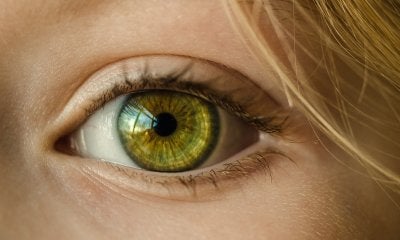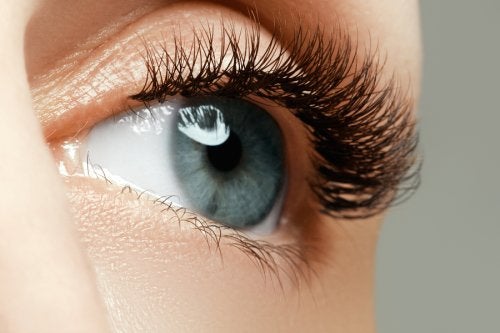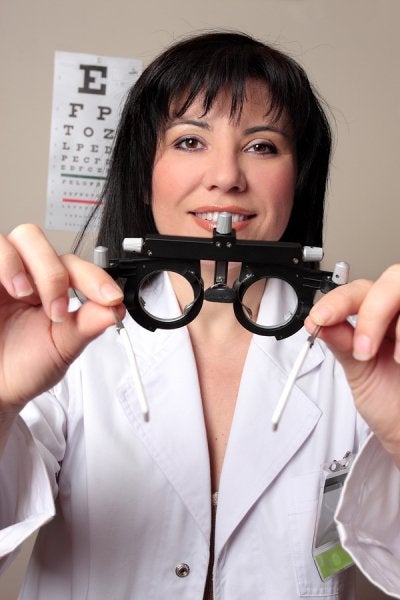-
The Patient’s Guide to IOLs
If you’re having trouble with your vision, your eye doctor in Chicago might recommend the use of intraocular lenses , or IOLs. These intraocular implants can help patients deal with certain types of eye diseases, and in doing so they can improve their happiness and comfort. There are a few different kinds of IOLs, and you can discuss the different types with your ophthalmologist to find out which might be right for you. However, they are typically all made of the same material. Read ahead for a quick look at the patient’s guide to IOLs.

When IOLs Are Appropriate
The human eye has many different parts, from the pupils that adjust to let different amounts of light in, to the retinas in the back of the eyes where the images land. When it comes to focusing and visual acuity, you rely primarily on your lenses. Unfortunately, many peoples’ lenses gradually lose strength over time. If you have severe cataracts, then your eye doctor may remove your lens entirely. In this case, the ophthalmologist may replace your original lens with an IOL, which is just an artificial replacement lens. By replacing your cataract lens with a clear new one, you can alleviate issues like blurriness and dulled colors.
Types of IOLs
When you talk to your eye doctor about the possibility of an IOL, you will find that there are quite a few different kinds. A monofocal IOL tends to be the go-to choice after cataract surgery. People typically use these IOLs for distance and wear eye glasses for reading. Toric IOLs are helpful for those with astigmatism, and multifocal IOLs handle both distance and close-up vision. You can also talk to your eye doctor about accommodative IOLs, which can actually change shape after being placed.
What IOLs are Made of
Although there are different kinds of IOLs that you can use after cataract surgery, most of them are made of acrylic or silicone. Additionally, intraocular lenses may help protect your eyes from overexposure to ultraviolet rays. This can prevent additional damage to your eye health in the future.
-
The Truth About Glaucoma Symptoms
Some eye conditions are obvious, but others require the help of an eye doctor in Chicago to diagnose. Even those who practice excellent eye care may run into certain eye health issues, so it’s wise to maintain a working relationship with your ophthalmologist. Glaucoma is one eye condition that can compromise your vision and ultimately change your quality of life. You might not notice signs of the disorder on your own, but your professional will be able to detect its presence. Read on for the real truth about glaucoma symptoms.
Glaucoma symptoms are tricky because they don’t always exist. In fact, many people with glaucoma don’t experience any symptoms at all until the disease progresses. Those who do notice symptoms of this condition may experience blurred or distorted vision. As the disease progresses, you might experience vision loss as well. Angle-closure glaucoma is a rare kind that may cause nausea and eye pain. Since there is no cure for glaucoma and you might not actually experience symptoms, it’s extra important that you visit your eye doctor for screenings. Your ophthalmologist can check for signs of glaucoma, and he or she can devise a treatment plan if you appear to have the disease.

-
Protecting Your Eyes from UV Rays
The light that we get from the sun comes in the form of ultraviolet, or UV, rays. While the first sunny day of spring might improve your mood, exposure to these rays comes with implications for your eye care near Chicago. Talk to your eye doctor about how to keep your eyes healthy , and watch this video on protecting your eyes from UV rays.
Overexposure to UV rays can fade your carpets and furniture, burn your skin, and even damage your eyes. This is why you should do your best to protect yourself from overexposure when you spend time in the sun. Sunglasses can be effective, but you should choose a pair that blocks 100% of both UVA and UVB rays, so be sure to check the label. It’s also a good idea to wear a hat for extra protection. Keep in mind that UV rays can even damage your eyes on cloudy days.
-
May is Healthy Vision Month
Although you should practice proper eye care every day, May happens to be Healthy Vision Month. The purpose of this campaign is to raise awareness about the importance of eye health and teach people how they can keep their vision sharp for the rest of their lives. In order to stay on top of your eye health, you should know a little bit about your family history and what you might be susceptible to. Do your best to protect your vision when you’re out and about, and see your eye doctor in Chicago for routine checkups. May is Healthy Vision Month, so continue reading to learn about the principles it focuses on.

Know Your Family History
You are who you are thanks to nature and nurture, and both of these constructs play a role in your eyesight as well. Some of the traits that make you who you are will have been passed down through your bloodline. For this reason, it’s a good idea to know what kinds of health issues run in your family. Just like heart disease and bipolar disorder, eye conditions can be hereditary. Celebrate Healthy Vision Month by learning about your family’s eye health.
Protect Your Eyes
Your eye doctor wants the best for your eyes, but you need to do your part to keep your vision sharp. Overexposure to ultraviolet rays can have a negative impact on your vision and even lead to eye health issues. When you go outside, be sure to wear sunglasses that block out ultraviolet rays. It’s also a good idea to stay in the shade, and you can even wear a hat for extra coverage. The better you protect your eyes, the happier your eye doctor will be during your next visit.
See Your Eye Doctor
Proper eye health is a team effort, so you can’t handle it alone. Your ophthalmologist knows what’s best for your eyes, and he or she can screen you for diseases that you might not catch yourself. If you haven’t seen your eye doctor lately, take the opportunity to make an appointment during Healthy Vision Month.
